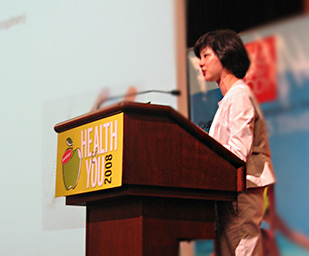| tel: | (65) 6255 2823 |
| fax: | (65) 6255 7073 |
| WhatsApp: | (65) 9230 7673 |
| emergency tel: | (65) 6535 8833 |
| (after office hours) |
| tel: | (65) 6255 2823 |
| fax: | (65) 6255 7073 |
| WhatsApp: | (65) 9230 7673 |
| emergency tel: | (65) 6535 8833 |
| (after office hours) |
| tel: | (65) 6255 2823 |
| fax: | (65) 6255 7073 |
| WhatsApp: | (65) 9230 7673 |
| emergency tel: | (65) 6535 8833 |
| (after office hours) |
EVENTS / TALKS
Please note: The information below is not meant to replace a medical consultation. You should always consult your doctor for diagnosis and medical advice.
"Pregnancy Matters" was a talk given by Dr Judy Wong on 25 May 2008 at Singapore Press Holdings auditorium. The talk was part of the "Health & You Seminar", organized by The Straits Times "Mind Your Body". This is a summary of the talk.
PREGNANCY MATTERS: 25th May 2008
what our patients say
My experience with Dr Judy Wong was excellent! Even the second time round. Dr Wong is patient – we never feel rushed at every consultation and can ask our questions thoroughly. She is also clear with her follow-up advice and is open-minded to various aspects of delivery, both pre- and post-natal.
Her clinic staff is very meticulous and friendly. Always a calm, relaxing feeling when here. -- Sharon

CONTACT INFORMATION & LOCATION
| Tel: | (65) 6255 2823 |
| Fax: | (65) 6255 7073 |
| WhatsApp: | (65) 9230 7673 |
| Emergency Tel: | (65) 6535 8833 After Office Hours |
| Address: | #04-08 Thomson Medical Centre 339 Thomson Road Singapore 307677 |
OPENING HOURS
| Mon ~ Fri: | 9:00am ~ 5:00pm | |
| Sat: | 8:30am ~ 1:00pm |
CONTACT US
COPYRIGHT JUDY WONG CLINIC FOR WOMEN 2018
RUNNING medi-webPage 9.0
OUR SERVICES
First Trimester Pre-Eclampsia Screening
NIPT (Non-Invasive Prenatal Testing)
Family planning / Contraception
Cervical cancer vaccination
Female cancer and health screening
Laparoscopy (key hole) surgery
Infertility workup and treatment
Menstrual problems, Painful Periods
Menopause
Management of fibroids, ovarian cysts, polyps, endometriosis, vaginal infections
PAP smear
HPV testing
OPENING HOURS
| Mon ~ Fri Sat | 9:00am ~ 5:00pm 8:30am ~ 1:00pm |
LOCATION
| #04-08 Thomson Medical Centre 339 Thomson Road, Singapore 307677 |

EVENTS / TALKS
Please note: The information below is not meant to replace a medical consultation. You should always consult your doctor for diagnosis and medical advice.
PREGNANCY MATTERS: 25th May 2008
 "Pregnancy Matters" was a talk given by Dr Judy Wong on 25 May 2008 at Singapore Press Holdings auditorium. The talk was part of the "Health & You Seminar", organized by The Straits Times "Mind Your Body". This is a summary of the talk.
"Pregnancy Matters" was a talk given by Dr Judy Wong on 25 May 2008 at Singapore Press Holdings auditorium. The talk was part of the "Health & You Seminar", organized by The Straits Times "Mind Your Body". This is a summary of the talk.
what our patients say
My experience with Dr Judy Wong was excellent! Even the second time round. Dr Wong is patient – we never feel rushed at every consultation and can ask our questions thoroughly. She is also clear with her follow-up advice and is open-minded to various aspects of delivery, both pre- and post-natal.
Her clinic staff is very meticulous and friendly. Always a calm, relaxing feeling when here. -- Sharon
CONTACT US
OPENING HOURS
| Mon ~ Fri Sat | 9:00am ~ 5:00pm 8:30am ~ 1:00pm |
LOCATION
| #04-08 Thomson Medical Centre 339 Thomson Road, Singapore 307677 |
COPYRIGHT JUDY WONG CLINIC FOR WOMEN 2018
RUNNING medi-webPage 9.0